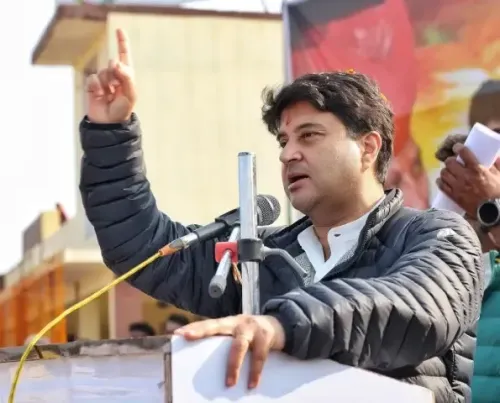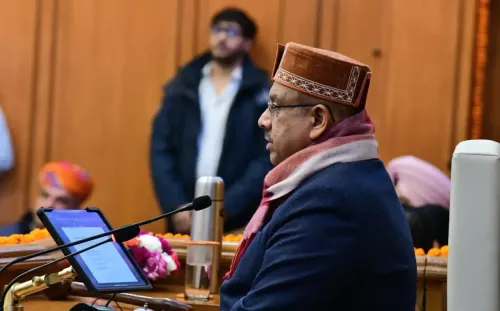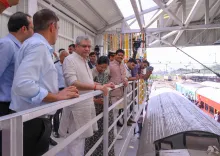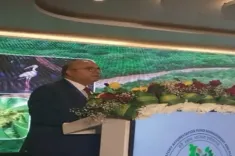Did Tesla India Just Lease a ₹25 Crore Service Centre in Mumbai?
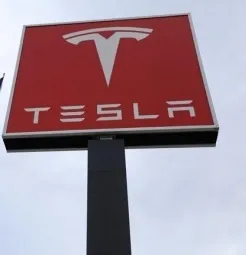
Synopsis
Key Takeaways
- Tesla India has leased a significant space for a service centre in Mumbai.
- The company is focused on selling vehicles in India, not manufacturing.
- The lease agreement is worth approximately ₹25 crore over five years.
- India's EV policy is attracting international car manufacturers to the market.
- Major players like Mercedes-Benz and Volkswagen are showing interest in India.
Mumbai, June 3 (NationPress) Tesla India Motor and Energy Private Ltd has secured a lease for a 24,500-square-foot facility in Kurla West, Mumbai, intended for a service centre that is conveniently located near its forthcoming showroom in the Bandra Kurla Complex (BKC).
This development represents a crucial milestone in Tesla's strategy to penetrate the Indian electric vehicle (EV) market, although the company is not currently planning to manufacture vehicles locally.
According to real estate documents obtained from CRE Matrix, a property data analytics firm, Tesla has entered into a lease and license agreement with Bellissimo in City FC Mumbai I Private to occupy the space in Lodha Logistics Park.
The lease is structured for a duration of five years, commencing with a monthly rent of ₹37.53 lakh. Over the term of the lease, Tesla will disburse approximately ₹25 crore in total, which includes a security deposit of ₹2.25 crore, as per the documents.
Tesla has explicitly stated that its current focus is solely on selling its vehicles in India, rather than producing them here.
“They are not interested in manufacturing in India,” remarked Union Heavy Industries Minister H.D. Kumaraswamy on Monday, noting that Tesla's plans revolve around establishing showrooms for sales purposes.
The minister made these comments during a press briefing that unveiled India's flagship EV policy, which is now open to global automakers aspiring to manufacture and sell EVs in the nation. Notable companies such as Germany's Mercedes-Benz and Volkswagen, along with South Korea's Hyundai Motor, have already expressed interest.
All three automakers currently have manufacturing facilities in India, with Hyundai announcing its intention to make India its global hub for EV production.
Volkswagen India is also closely monitoring the developments of the EV policy and is carefully assessing its potential effects before making further decisions.
The government has introduced guidelines for its progressive scheme aimed at attracting fresh investments from international manufacturers in the electric vehicle sector, positioning India as a global manufacturing hub for e-vehicles.


